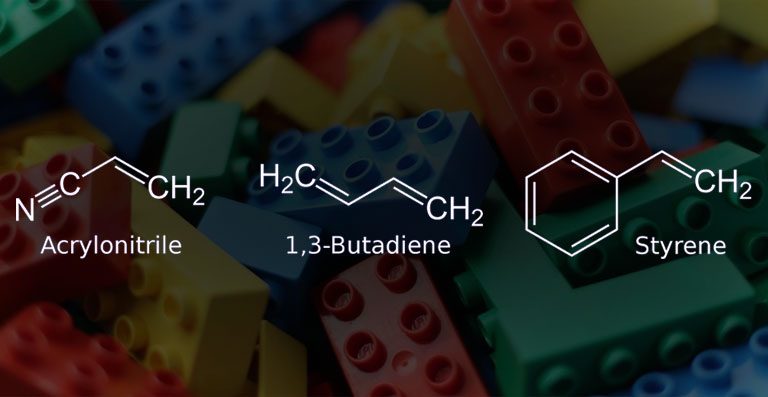Why ABS Plastic is Widely Used in Various Industries
This article discusses why ABS or Acrylonitrile Butadiene Styrene is one of the most favored choices of plastic for numerous engineering projects and industrial applications. Before we dive into the main gist of this article, let us first understand how ABS is made.

How is ABS Made?
ABS is a thermoplastic that is produced by fusing polybutadiene rubber with styrene polymers, and acrylonitrile, it’s most commonly created through a process called emulsion. The styrene gives ABS a shiny look with an impervious surface and the polybutadiene provides a superior level of durability that ABS is so famously known for.
Industries Where ABS is Preferred:
Not only is ABS reliable and tough, but it is also affordable. Listed below are some industries where ABS is widely used.
- Oil & Gas
- Defense
- 3D Printing
- Aerospace
- Medicine & Pharmaceutical
- Food Handling
- Material Conveying
Why is ABS Plastic Popular in Many Industries?
ABS possess several attributes, making it an ideal plastic for several industrial applications. Let us go through some noteworthy properties to gain a better understanding of what makes it so popular.
- The most important property as mentioned earlier is its toughness and impact resistance. But what makes ABS even more interesting is that its impact resistance can be augmented through a series of modifications. By increasing the proportions of polybutadiene in relation to styrene, we can improve its toughness and resistance to heat.
- ABS is a thermoplastic material, which means it can be easily recycled. This proves to be a massive advantage for many industries because new products can be formed by recycling other ABS plastics.
- ABS plastics commonly cater to mechanical purposes. However, they also possess electrical insulation properties that are constant over a broad range of frequencies. These properties remain unaffected by harsh temperatures and atmospheric humidity, making it an ideal choice for various industries.
- They are resistant to aqueous acids, alkalis, concentrated phosphoric and hydrochloric acids, alcohols and oils.
- ABS is an incredible material when it comes to prototyping and 3D printing. They offer excellent design flexibility. What’s more, ABS is dimensionally accurate. This means 3D printed products can be produced with immense accuracy and precision.
With all the above-mentioned properties it is clear why ABS plastic is preferred by multiple industries. If you are in the plastic industry, then Plastivision is a great platform for you to showcase your product range and network with industry professionals. Book your booth today!
Leave a Reply Cancel reply
Recent Posts
- Understanding The Materials That Are Used To Build Plastic Toys
- All You Need To Know About Food-grade Plastics
- A Glance At The Materials That Boost The Performance Of Plastics
- Understanding The Importance Of Exploring New Business Opportunities In The Plastic Industry
- Understanding The Importance Of Investing in R&D For The Plastic Industry
Categories
- 3D Printing
- AIPMA
- Automation
- Automobile Sector
- Bio Plastics
- Environment
- Innovations In Recycling
- Latest Innovations
- Molds & Dies
- News
- Packaging Industry
- Plastic
- Plastic Application
- Plastic Industry
- Plastic Market
- Plastic Myths
- Plastic News From The World
- Plastic Packaging
- Plastic Products
- Plastic Recycling
- Plastic Solar Cells
- Plastic Toys
- Plastic Waste
- Plastic World
- Plastics
- Plastics And Their Applications
- Plastics In Agriculture
- Plastics In Healthcare
- Plastics In Medical Industry
- Plasticulture
- Processing Machinery
- Recycling Machines
- Robotics
- Uncategorized
- Virtual Reality
Archives
- November 2023 (3)
- October 2023 (2)
- September 2023 (3)
- August 2023 (3)
- July 2023 (3)
- June 2023 (3)
- May 2023 (2)
- April 2023 (2)
- March 2023 (2)
- February 2023 (2)
- January 2023 (2)
- December 2022 (3)
- November 2022 (1)
- October 2022 (1)
- September 2022 (2)
- August 2022 (1)
- July 2022 (3)
- May 2022 (3)
- March 2022 (2)
- February 2022 (1)
- January 2022 (1)
- September 2021 (2)
- August 2021 (3)
- July 2021 (4)
- June 2021 (4)
- May 2021 (3)
- April 2021 (2)
- March 2021 (4)
- November 2019 (8)
- October 2019 (8)
- September 2019 (8)
- August 2019 (8)
- July 2019 (8)
- June 2019 (8)
- May 2019 (8)
- April 2019 (8)
- March 2019 (8)
- February 2019 (11)
- January 2019 (8)
- December 2018 (8)
- November 2018 (12)
- October 2018 (12)

